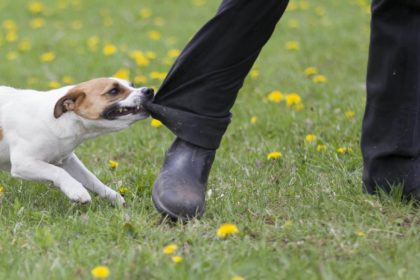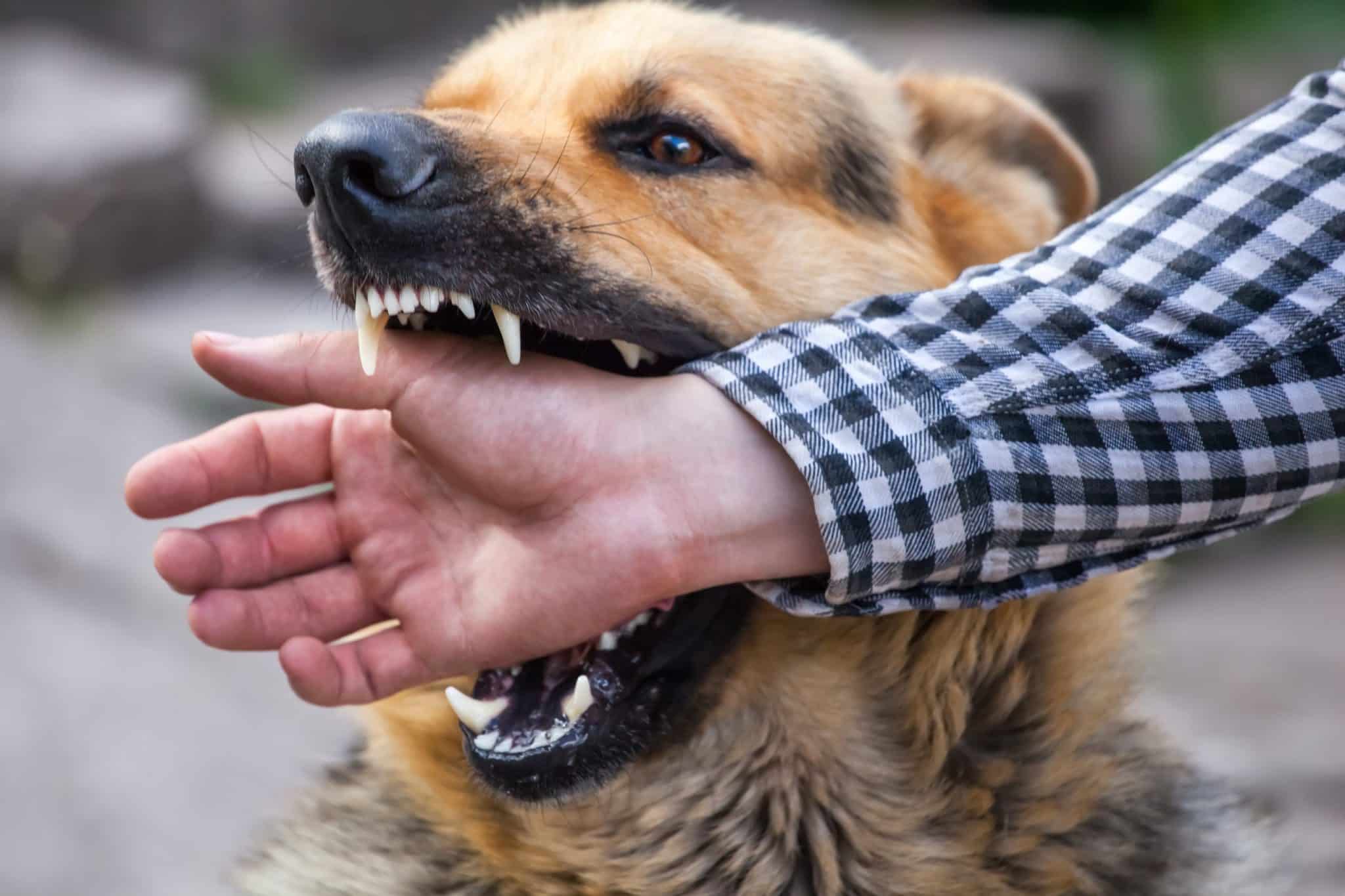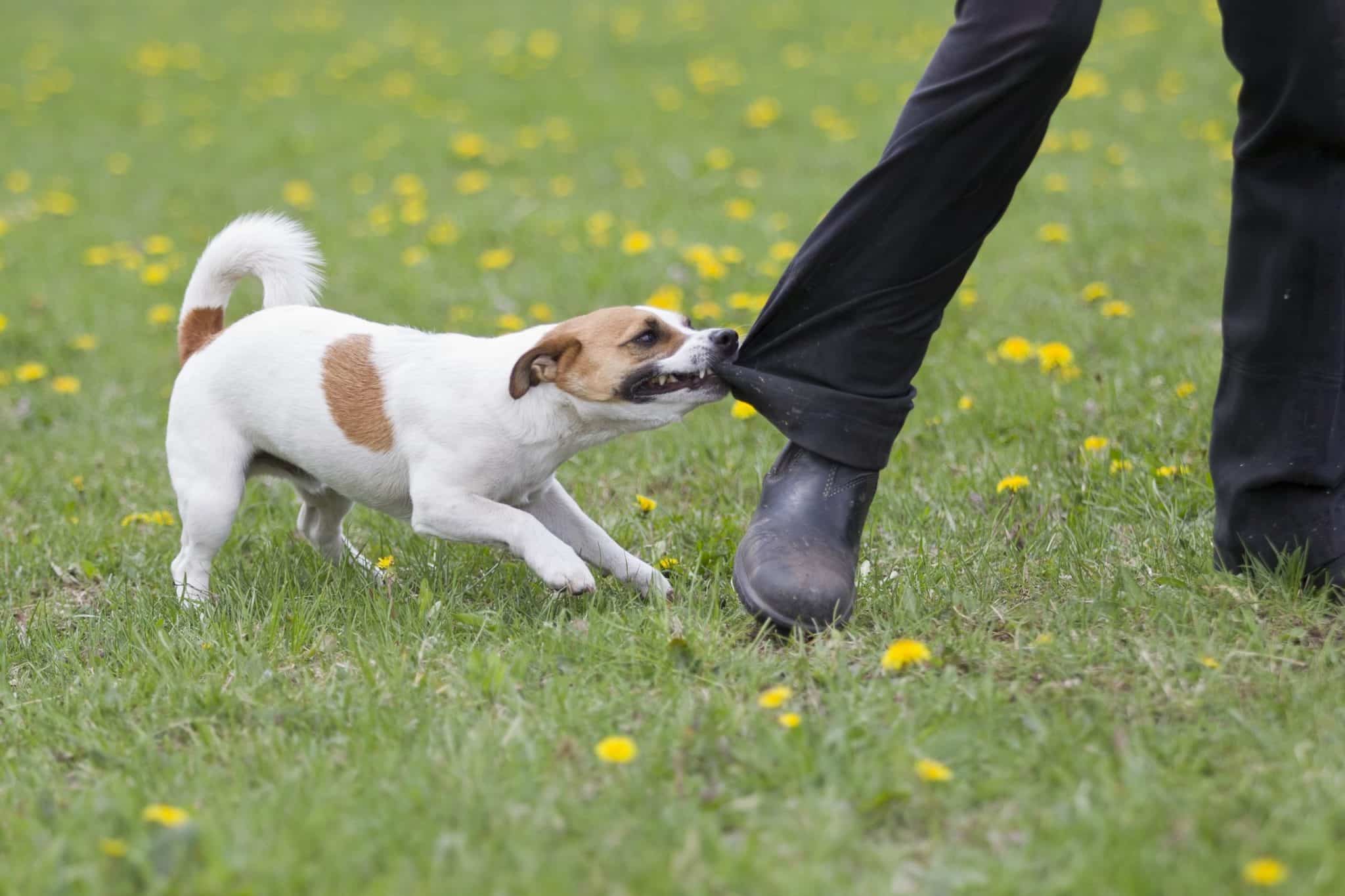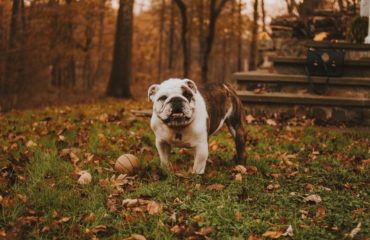How to Stop your Dog from Biting

All dogs have the potential to bite, even if they haven’t shown aggressive behaviour before. It’s the pet owner’s responsibility to prevent this from happening with proper training.
Research carried out in last year’s lockdowns revealed that there had been a huge rise in online users searching for ‘dog bite’, ‘dog bite lawyer’, and ‘dog attack’ since the pandemic puppy boom. These findings suggest more people are seeking advice on rectifying their dog’s aggressive behaviour or what to do after a dog attack.
With this in mind, Benchmark Kennels have put together a guide for preventing biting and behavioural problems from developing, identifying the signs your dog is about to bite, and what to do if it occurs.

What Can Cause a Dog to Bite?
Playing
Biting is often a result of your dog becoming overly excited when playing. Mouthing or biting is a common way that dogs engage with play. This is often the main cause of puppy nipping.
While it may hurt and not be so enjoyable for us, it is natural for dogs as this is how they play with each other. If you are concerned about biting during play, consult a trainer to help you with how to stop your dog nipping.
Feeling Threatened
Most aggression in dogs is based on fear. Biting is often a natural response to a threatening situation, such as being startled by a loud noise or even attacked by another dog. A dog may bite to defend itself especially if it has been abused, abandoned previously in its life or had issues with other dogs.
A lack of training can cause a dog to feel anxious or scared in certain situations, which can cause them to react aggressively. Beginning training at around eight weeks old can prevent this fear and anxiety.
Protecting Their Territory
Dogs may bite people if they are protecting their territory or if you grab their toys or food. This type of biting is known as resource guarding behaviour.
If your dog has just had puppies, you should avoid touching them until 3 weeks after they’ve been born, as some mothers can be aggressive if you try to hold them.
Remember to avoid overwhelming your dog. Providing them with somewhere to shelter, such as an outdoor kennel can help you to recognise when they’re needing space.
In Pain
Another common cause of a dog biting is when they are in pain. Being sick can be a stressful and overwhelming time for your dog. Even the most tolerant dogs will lash out if they are struggling with an illness or injury.
If aggressive behaviour occurs suddenly, seek advice from a veterinarian as there is more than likely a medical cause.
Feeling Frustrated
If your dog is frustrated, this can often lead to aggressive behaviour. Dogs that feel trapped and uncomfortable in a certain situation may lash out in response.
To prevent this from happening, avoid putting your dog in any type of situation that is likely to stress them out. Begin training at an early age, or call a qualified dog trainer to help you out.
How to Tell if Your Dog is About to Bite
Most dogs will try to communicate discomfort or anxiety prior to biting. Recognising your dog’s body language and how it changes based on how their feeling, will help you defuse a situation if they become aggressive.
Here are some warning signs to look out for:
- Baring teeth
- Raised hackles
- Growling
- Rigid and quick tail wagging
- A stiffened body posture
- Avoiding eye contact
- Snapping
- Ears perked
- Fur standing up on the back of the neck
Aggression in dogs is most likely to stem from fear or anxiety, so it’s helpful to identify the body language for these emotions too, such as:
- Cowering
- Lowering their body
- Hanging their head low
- Pointing their ears backwards
If your dog becomes aggressive when you’re alone, stay calm, don’t make any sudden movements and slowly back away. Don’t look them in the eye, smile at them, or show your back to them either.
If you’re in a public place and there is a risk your dog could bite another animal or person, approach them very carefully and remove them from the situation as quickly as possible. Place them in a more calming and quiet environment to allow them time to calm down.
How to Stop Your Dog Biting: Understanding and Preventing Aggressive Behaviour
The best way to stop a dog from biting is to train them from an early age, however this isn’t always possible, especially if you have a rescue dog. Here we’ll discuss all of the options you can try to help prevent this kind of behaviour.
Choosing the Right Dog
Carefully select a dog that’s right for you, considering all of your personal circumstances and the time you have to train and care for it. So many dogs are brought into rescue centres every year due to their families being unable to control or manage aggressive behaviour. It’s important you start by choosing the right dog for you and your family.
If you’re thinking of adopting a dog, look to find one at a well-managed animal shelter, whose staff can tell you everything about the dog’s personality.
Socialisation
Dogs should typically be socialised from four to twelve weeks old when their brains are more flexible and receptive. This technique will help them feel comfortable around new people and other dogs, preventing puppy nipping.
Expose your dog to different types of people, children, disabled people, elderly, and positively reward them for any good behaviour they demonstrate. Regular but controlled exposure to a variety of different situations, including people and loud noises, can help you to control and manage your dog’s behaviour.
Obedience Training
Don’t wait for a serious accident to happen. Obedience training should be completed at an early age for every dog. If your dog is obedient, you’re more likely to have control over a challenging situation. By using basic commands, you can keep your dog out of trouble.
Put your dog through training at an early age and continue the training program throughout its life. If you’re struggling to train them yourself, take them to puppy training classes or hire a professional.
Positive Reinforcement
Punishing your dog for bad behaviour is likely to encourage aggression, mistrust, and anxiety. Instead, reward your dog for good behaviour with treats, verbal praise, petting, or playtime to strengthen your bond in the process.
Working with a professional dog behaviourist is a great way to implement these training techniques and minimise bad habits from forming. It’s especially beneficial to work with a trainer if you’re looking to retrain and remedy poor behaviour in an older dog.
Visits to the Vets
Keep on top of your dog’s vaccinations and regularly visit the vets for health check-ups. This can help to eliminate biting from pain and discomfort as well as make sure your dog’s health and happiness is maintained.
Avoiding Risky Situations
Although your dog should be trained to react well in risky situations, you should avoid:
- Letting people stroke your dog through the fence of your home
- Letting strangers come up to your dog and stroke it, without your permission
- Grabbing a dog’s food or toys when it is eating or playing
- Letting children handle the dog in an improper manner
- Startling your dog when it is sleeping
- Letting your dog off the lead when there’s other dogs around and you struggle to recall it
These situations are often difficult to manage, and can lead to aggressive behaviour.

What to Do if Your Dog Bites
If your dog bites you, don’t pull away, as this can increase their aggression. Try putting an object between you and the dog e.g. a toy. Avoid making loud noises and don’t hit them, as this will just aggravate them further.
Confine the dog to their crate, kennel or another room. Then, clean the wound with soap and warm water. If the bite is deep, painful, inflamed, or discoloured, seek medical attention from your doctor.
If your dog has bitten somebody else, help the victim as soon as you have safely removed the dog from the situation. Depending on the severity of the bite, you may need to call for an ambulance. Exchange contact details with the injured person, as it’ll help your case if you’re cooperative. If your dog was provoked, get the contact details of the witnesses as well to support your defence.
Giving Your Dog a Place to Rest
Benchmark Kennels provide a range of outdoor kennels that your dog can use as a den and retreat to when they feel overwhelmed by guests, loud noises, or other animals. Providing your dog with a ‘safe space’ where they can have uninterrupted alone time is especially beneficial if they struggle with anxiety.
Our range of high-quality kennels can be customised to suit your dog’s shape, size, breed and special requirements. For more information, contact a member of our friendly team today.




